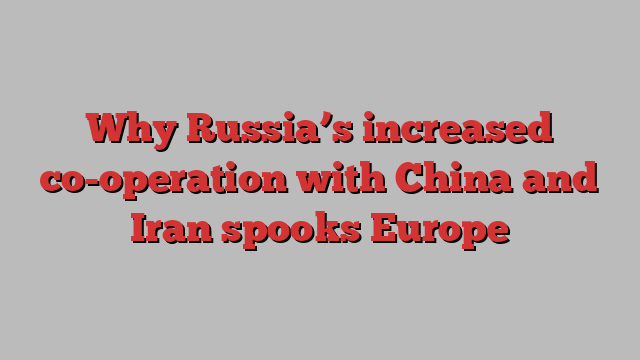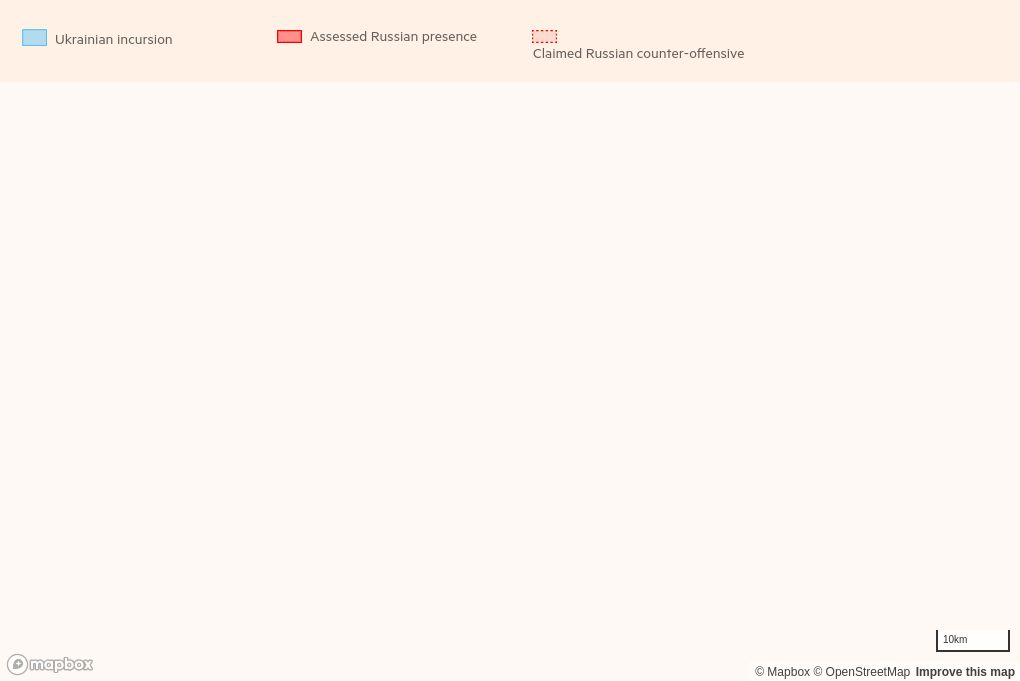
This article is an on-site version of our Europe Express newsletter. Premium subscribers can sign up here to get the newsletter delivered every weekday and Saturday morning. Standard subscribers can upgrade to Premium here, or explore all FT newsletters
Good morning. Here’s a cracking story to start the week: The German government was not aware that its own financial adviser was inviting Italy’s UniCredit to bid for Berlin’s 4.5 per cent stake in Commerzbank, despite the move opening the door to a full takeover of the systemic Frankfurt-based lender.
Today, I explain the rising fears about Russia trading military secrets to its Chinese and Iranian war suppliers, and Laura reports on new migration statistics that paint a slightly different picture than far-right rhetoric.
Sharing is scaring
European officials are increasingly concerned about Russian military co-operation with both China and Iran, as Moscow shares cutting-edge defence knowhow with two of its most important suppliers for the war in Ukraine.
Context: Chinese trade with Russia has soared over the past three years, offsetting western sanctions and providing components for Moscow’s weapons factories. Iran is providing Russia with large supplies of armaments such as attack drones.
Over the past week, US and European officials have shared intelligence on how much military knowhow and defence insight Russia is providing China and Iran, with potentially major ramifications for the two countries’ future military capabilities.
Kurt Campbell, the US deputy secretary of state, briefed senior EU and Nato officials on Russia assisting China with advanced submarine, missile and stealth capabilities, in exchange for Chinese supplies for its war machine. UK and US officials have also discussed Russia sharing technology with Iran that could help its nuclear weapons programme — including during the White House visit of British Prime Minister Keir Starmer.
These quid pro quo arrangements spook European defence officials for two reasons.
One, they’re worried about how China and Iran could use Russian technology to beef up their military capabilities, and threaten their — or their allies’ — defence assets around the world.
Two, there’s deep concern about what such steps say about the Kremlin’s frame of mind. Russia had in the past heavily guarded its military advances, especially from potential future rivals such as China. Trading its knowledge now is seen by some as sign of increased recklessness.
Campbell said that the US was sharing “data and clear metrics” with European allies on what he described as “worrisome collaboration” regarding Russian military “design, research and development and also application”.
“We’re in close collaboration on next steps,” Campbell said, referring to Russia’s links to China, Iran and also North Korea. “It’s a subject of real concern.”
Chart du jour: Ukraine’s foothold

Ukraine’s incursion into Russian territory was always a gamble. But with Kyiv’s forces in Kursk now on the back foot, the risks are growing, and the reward still uncertain.
High and steady
While the debate on immigration to the EU reaches new heights, a report by the EU Agency for Asylum shows that asylum numbers have remained relatively stable, writes Laura Dubois.
According to the EUAA’s latest migration data to be published today, some 513,000 people applied for asylum in the bloc in the first six months of this year, slightly less than the 520,000 applications during that time last year. That was the highest since the first half of 2016, when 613,000 people claimed asylum.
Context: Several European governments have been contending with rising anti-migration sentiment and promising to curb irregular migration. Germany recently expanded checks at its borders, following the regional election win of the far-right Alternative for Germany, which has made migration its flagship issue.
Germany is still the top destination for asylum seekers, but applications there between January and June declined by 20 per cent compared with the same period last year, the EUAA found.
Spain and Italy have the second and third highest number of applications; though Cyprus — due to its size — has the most applications per capita.
Syrians lodged the most applications, and more than last year — which is significant given calls to declare Syria safe — followed by Afghans, Venezuelans and Colombians, according to the EUAA.
The agency also notes that while many asylum seekers cross the border without a permit, many others enter the EU legally: A quarter of all asylum applications were from people who, due to their nationality, can travel to the EU without a visa, such as Colombians or Venezuelans.
Hungary, which recently kicked up a fuss over the EU’s asylum rules and threatened to bus asylum seekers to Brussels, only received 13 asylum applications in the first six months of this year.
What to watch today
-
European parliament plenary kicks off in Strasbourg.
-
EU ambassadors meet to discuss options to use Russian frozen assets for €50bn loan to Ukraine.
-
Informal meeting of EU research ministers in Budapest.
Now read these
-
Disjointed: The WTO has said the world needs a global price system for carbon emissions to prevent trade disputes, in a dig at the EU carbon border tax.
-
Shipped off: Matteo Salvini could face six years in prison for stopping a humanitarian boat carrying migrants from docking in Italy when he was Italian interior minister.
-
Maritime tips: UK Prime Minister Keir Starmer will meet Italy’s Giorgia Meloni for advice on tackling migration and to “smash the gangs” that smuggle people.
Recommended newsletters for you
Trade Secrets — A must-read on the changing face of international trade and globalisation. Sign up here
Swamp Notes — Expert insight on the intersection of money and power in US politics. Sign up here
Are you enjoying Europe Express? Sign up here to have it delivered straight to your inbox every workday at 7am CET and on Saturdays at noon CET. Do tell us what you think, we love to hear from you: [email protected]. Keep up with the latest European stories @FT Europe